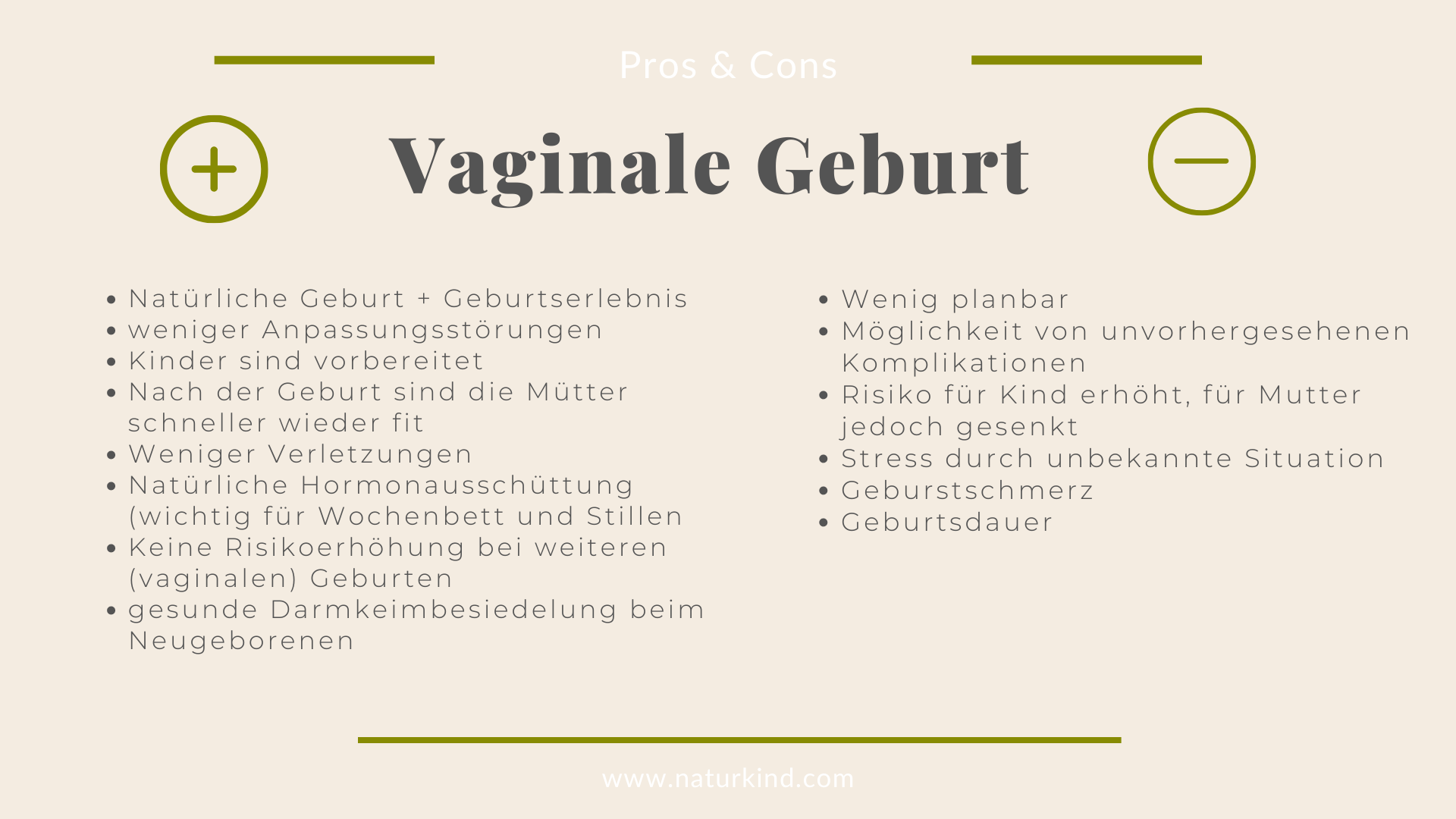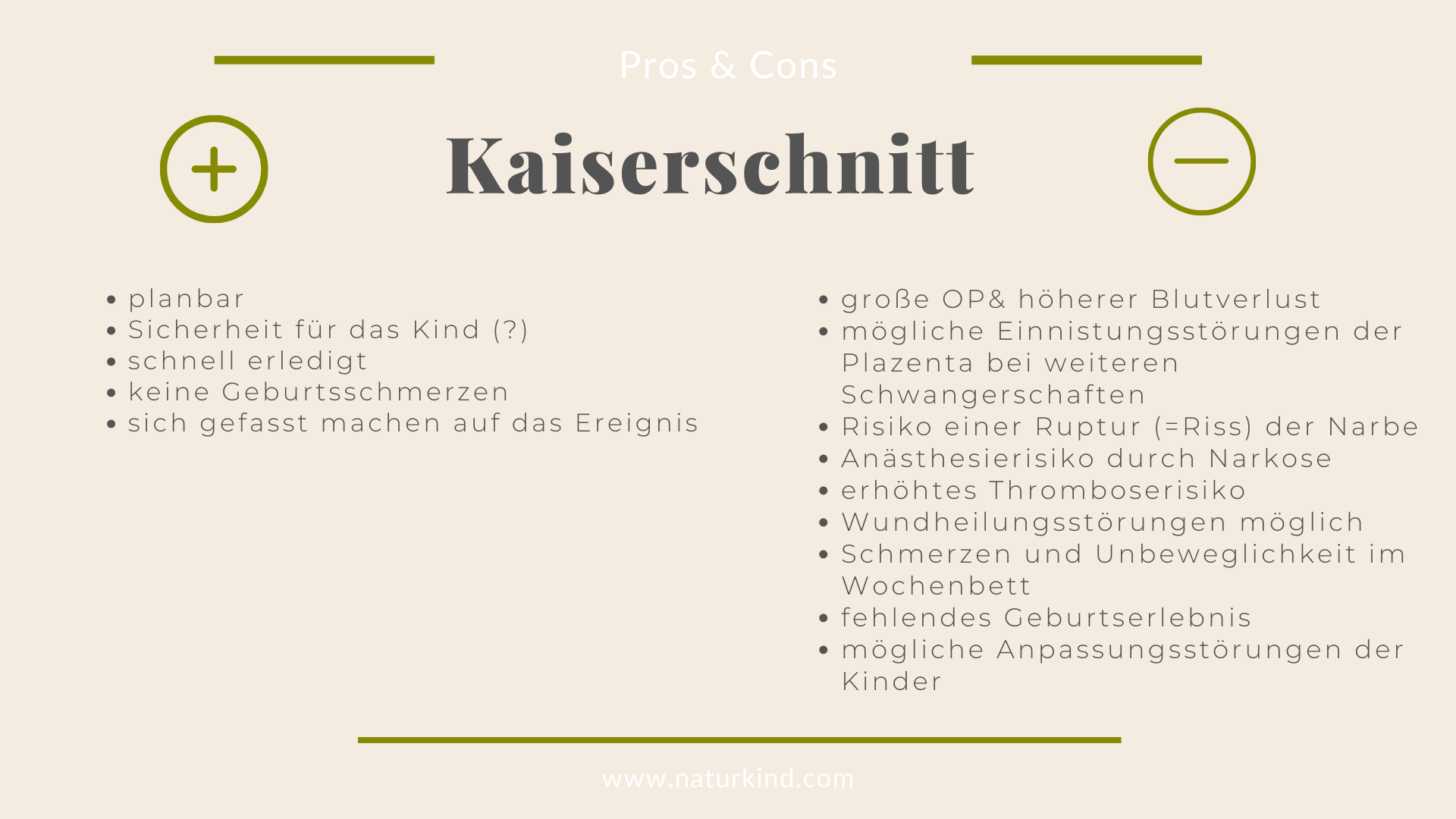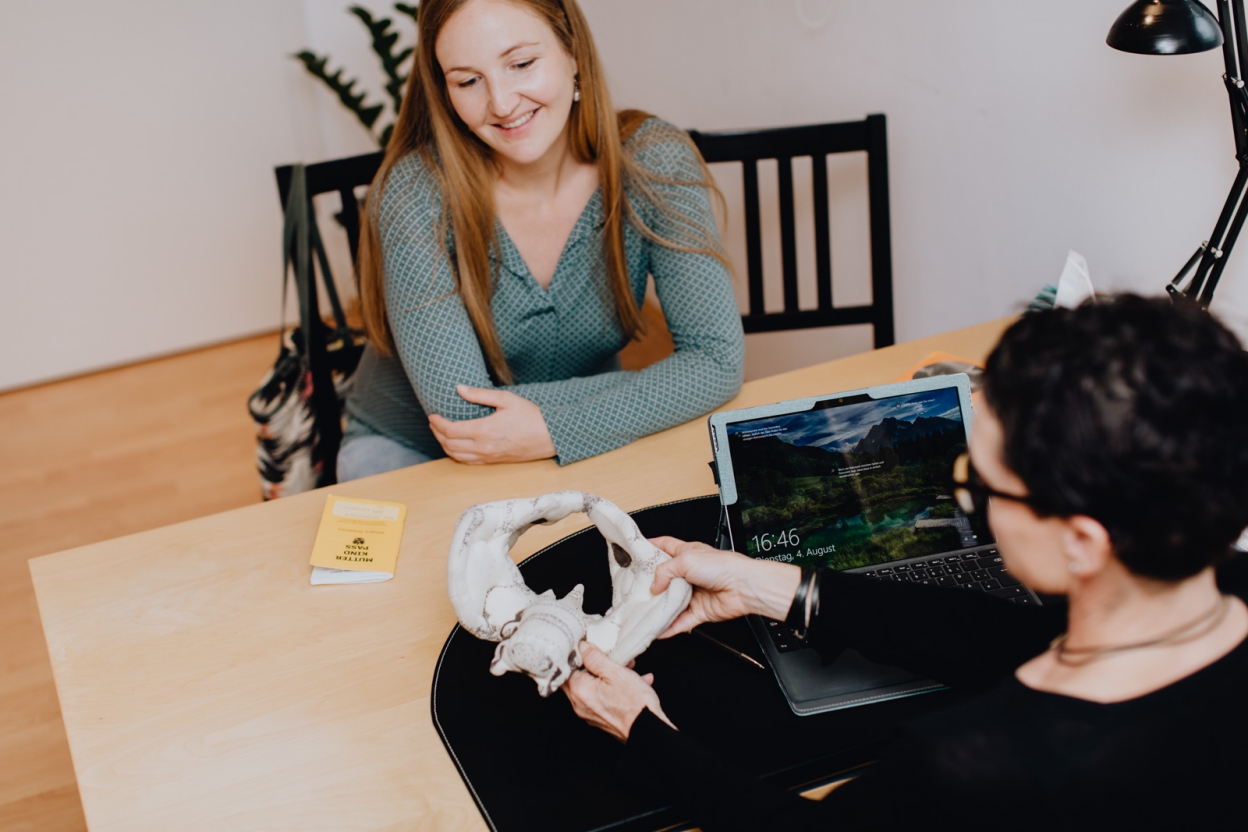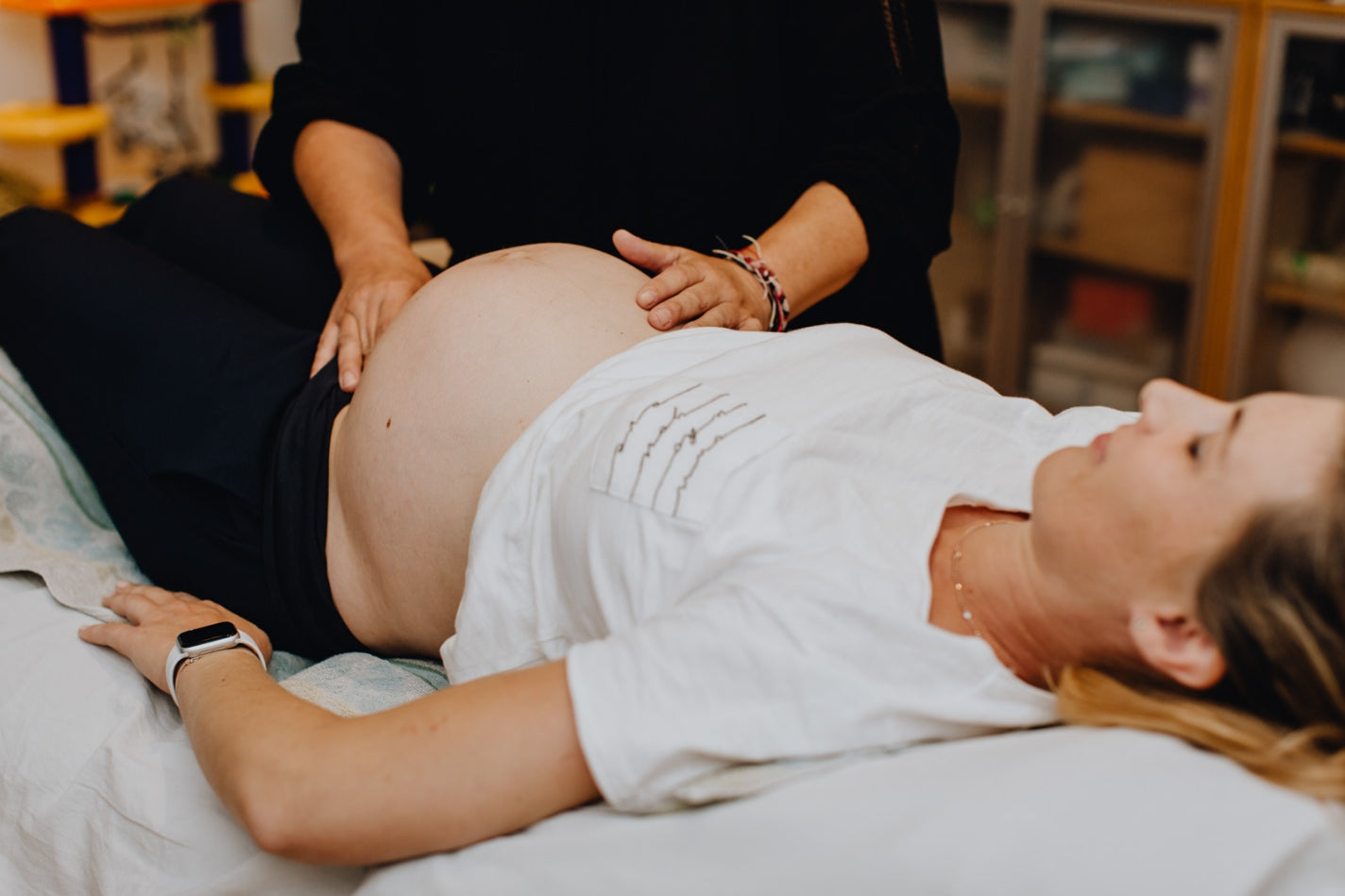I have just come from one of the countless consultations with a pregnant woman who, due to circumstances or a "mild" medical indication, has to decide between a Caesarean section or a "normal birth". In her case, it is an impending birth of twins after a hospital birth and a home birth.
My first approach in such a situation is always to ask about her personal concerns, which option she is leaning towards and what her general attitude is. During this first conversation we very quickly come to the pros and cons of the two options (if I have both!).
In summary, there are certain advantages and disadvantages for both vaginal birth and cesarean section. So let's take a look at the hard facts about the delivery options:

"Any method of giving birth involves risk. Life itself does not give you a 100% guarantee of safety."

Say goodbye to a longing for guarantees
The points from the two tables above are the so-called "hard facts" about the two options for giving birth. Here you can already guess that every type of birth carries risks. I always point out to my patients that they don't have a 100% guarantee of safety in everyday life. This always makes the women and couples think and, as a result, brings them back down to earth.
In order to get through life properly and happily, we have to say goodbye to the longing for guarantees. I often notice that many women and couples become aware of this fact for the first time during pregnancy, with the impending birth in mind.
“It’s about accepting my own birth, my decision and ultimately accepting the situation as it happened.”
Birth experience as an essential pillar of psychological stability
What I also point out in consultations is the need to check who my patients' information about the cesarean section or "normal" birth comes from. In the course of the conversation, we usually find out that these stories come from laypeople who describe the birth situation in a rather unrealistic and very subjective way. If we can then clarify the concerns during our discussion, many women opt for a vaginal birth.
There are also studies in which women who have already experienced both types of birth were asked which option they chose for their next child: the majority of women therefore opted for a vaginal birth. I am also familiar with this situation from my professional life. Many women come to me after having a Caesarean section with the wish to give birth as naturally as possible.
This is not surprising, because a woman can always recount her birth story in detail - even if she is already suffering from dementia and doesn't remember many things very well! For us women, the birth experience is an essential pillar of our psychological stability. Of course, this does not mean that this psychological stability only occurs in women who have given birth vaginally, or that every woman has psychological problems after a Caesarean section! It is about accepting my own birth, my decision and, ultimately, accepting the situation as it happened.
How to deal with fear of childbirth?
What do I say to those pregnant women who are struggling with fear of childbirth - especially the pain of childbirth? First, we analyze what exactly they are afraid of. Is it the pain, is it the unpredictability, is it the fear that something bad will happen or the fear that someone will do something to me that I don't want?
Then we try to work out a concept together for the labor pains themselves, but also for the entire birth experience itself. This works very well with conscious, simple, deep breathing, concentration on others, positive associations and lots of information to reduce fears. If the women then take breathing practice seriously, have trained themselves well and can rely on it, then they have gained self-confidence.

Talk to professionals about your options
This self-confidence is one of the central points during birth. With this type of self-confidence, the focus is not on appearing confident to the outside world and presenting one's own strength, but rather on having real confidence in oneself and one's own abilities. In this context, it is also important that the person accompanying the child (usually the partner) believes in the woman giving birth!
In summary, I can only advise pregnant women to talk to both a gynecologist and a midwife about the mode of birth. Specialists try to provide objective information and can better assess the situation and the associated options.
Get the BEST out of your birth story. For you and your child!








Leave a comment
All comments are moderated before being published.
This site is protected by hCaptcha and the hCaptcha Privacy Policy and Terms of Service apply.